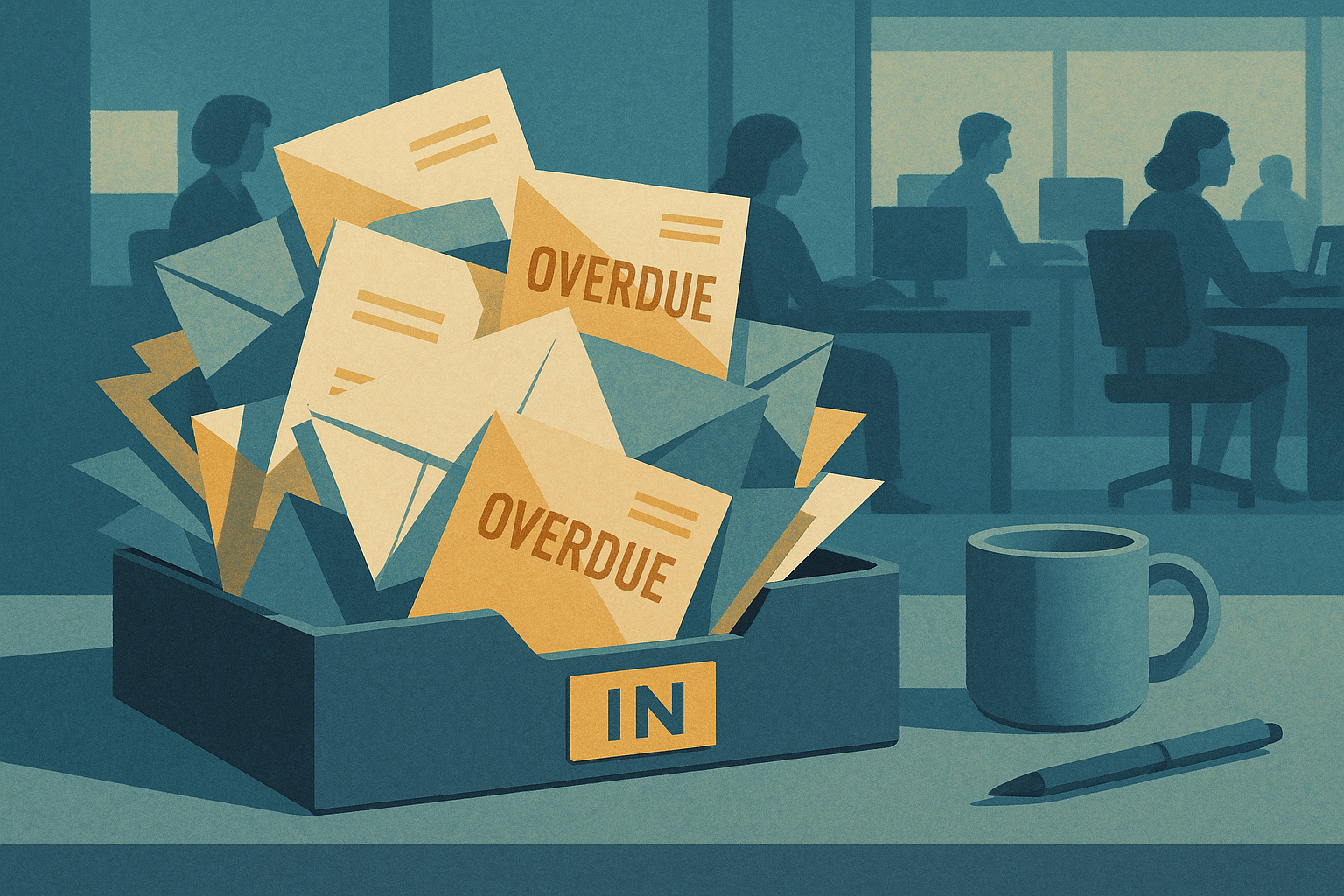The UK government has unveiled the toughest late-payment laws in decades, promising new powers and sharper enforcement to support small businesses. But as policymakers set out the case for reform, the scale of the late-payment crisis reveals deeper, systemic pressures threatening the backbone of the British economy.
Nearly two-thirds of UK SMEs are owed money from overdue invoices, according to a November 2024 Intuit QuickBooks survey. And based on recent data from the Federation of Small Businesses (FSB) and the government, the average small business is carrying more than £20,000 in late payments. In aggregate, over £20 billion is locked up in unpaid bills at any given time — a figure cited by HM Government and business groups as a defining drag on cash flow and growth for the UK’s enterprise sector.
This is no longer a background issue. For most small and mid-sized businesses, late payment is the norm, not the exception, and its effects ripple far beyond any one company. The real-world consequences are felt across the supply chain and in the daily operations of business owners who now see cash flow as a continual battle rather than a matter of routine management.
For many SMEs, chronic late payments make the difference between survival and insolvency. The delays are significant: more than half of overdue invoices are now 30 days or more past due, and a quarter of SMEs regularly wait up to 60 days beyond agreed terms to receive funds, according to the 2025 GoCardless/FSB SME Payments Report. To cover these gaps, nearly a third of affected businesses turn to short-term credit — often at punitive interest rates — or dip into reserves intended for growth or staff pay.
But the damage does not stop at individual balance sheets. It cascades through supply chains, with one business’s delayed payment quickly becoming another’s missed payroll or overdue supplier invoice. Research from the Department for Business & Trade and IFF Research reveals that 40% of businesses admit to delaying payments to their own suppliers because they themselves have been paid late. This “domino effect” destabilises entire supply networks and leaves the smallest and most vulnerable enterprises most exposed.
Much of this problem is not accidental. Surveys suggest late payment is often a deliberate tactic by larger companies, using smaller suppliers as a source of free credit. More than half of small businesses now see late payment as an inevitable part of commercial life, according to the FSB — and many simply write off debts rather than jeopardise client relationships. This “learned helplessness” is a key reason why existing legal remedies, such as charging statutory interest, are so rarely enforced in practice.
It is against this backdrop that the government’s new crackdown arrives. The Small Business Plan includes sweeping powers for the Small Business Commissioner, statutory maximum payment terms, mandatory interest on overdue invoices, and — for the first time — board-level accountability for payment practices at large companies. The aim is to rebalance the power dynamic in business transactions and address a practice that is now widely seen as a major economic drag.
However, business groups and analysts stress that legislation alone will not solve the problem. Chronic late payment has collided with an inflationary surge, high energy prices, and persistent supply chain disruptions. In this context, late payments act as a risk multiplier — turning broader economic headwinds into acute cash crises for small businesses. Over half of affected businesses say late payment has directly affected their ability to invest, hire, or cover energy bills, according to the 2024 Intuit QuickBooks report. With high borrowing costs and volatile input prices, the unpredictability of revenue flows is forcing business owners to make damaging financial decisions, from taking on costly debt to deferring staff pay or new projects.
Some industries are particularly exposed. In construction, entrenched practices such as cash retentions keep payments locked up for months, often with no guarantee of recovery if a major client fails. In retail and food sectors, reliance on short-term financing is more common, with businesses forced to borrow simply to maintain operations. Sector-specific data from IFF Research shows that SMEs in construction, goods, and pharmaceuticals report the highest incidence of late or withheld payments, while insurance firms fare better. Such disparities highlight the need for targeted enforcement and continued scrutiny of industry practices.
Late payment is far from a uniquely British phenomenon, but the UK’s new approach stands out in the European context. While the EU’s proposed Late Payment Regulation has been softened following resistance from member states, the UK is pressing ahead with state-led enforcement, setting a maximum 60-day term for B2B transactions, with a possible further reduction to 45 days in the future. By comparison, countries such as the Netherlands have introduced targeted caps for large-to-small business payments, while Spain is piloting a technology-driven approach with mandatory e-invoicing. Early evidence from European industry surveys suggests that legal and technological reforms can improve payment times, but progress remains uneven across the continent.
The effectiveness of the crackdown will depend on several factors: enforcement capacity, the credibility of penalties, and whether large businesses adapt quickly or find new ways to delay payments. The government’s own analysis estimates that late payments cost the UK economy £11 billion each year, with at least 38 business closures daily linked directly to cash flow crises. For the UK’s small business sector, the stakes could not be higher. As cash flow tightens and economic headwinds persist, the true test will be whether new rules can deliver not just fairer payment, but renewed confidence and resilience for the companies that drive the economy forward.




